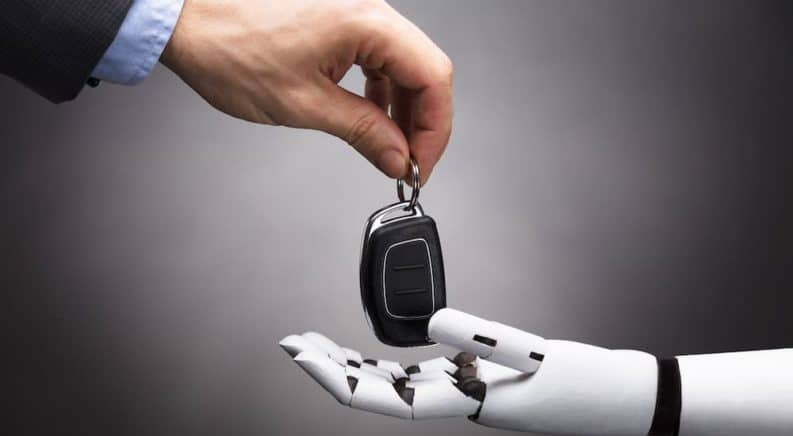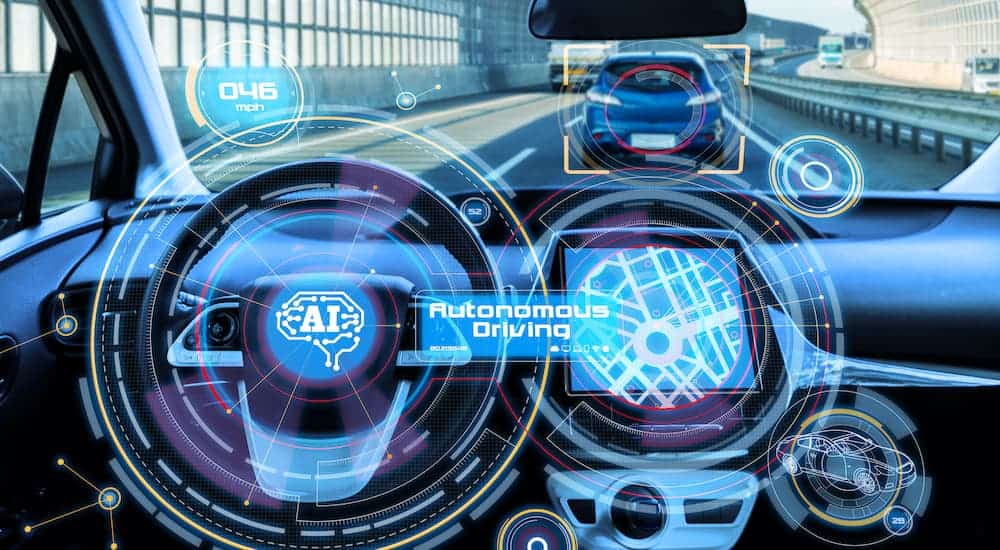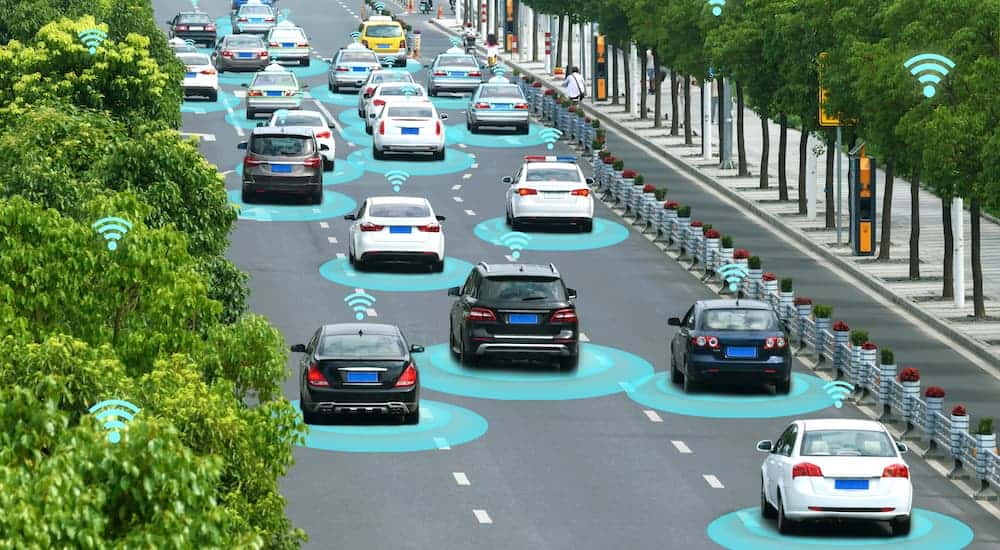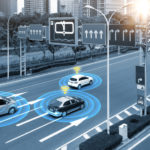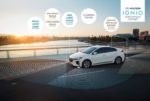Even though it’s taking a long time (I feel like Hollywood promised me self-driving cars decades ago), autonomous cars are going to be the future of the auto industry. Whether they will remain a niche feature for only the most luxurious of models, or if every car, truck, and SUV will eventually be autonomous, no one can say for sure. But whichever direction it goes, there’s no denying that full autonomy will be achieved at some point in the not-too-distant future, and the companies that develop it first will reap some serious rewards.
Whether you’re interested in investing in some tech companies and think autonomous cars are where you want to put your money, or you’re just interested in what’s coming in the industry, today I’m going to tell you about the major movers and shakers when it comes to this technology. Some of these names are ones you certainly already know – the big auto manufacturers aren’t being left out in the cold on this one – and there may be some surprises here too. Plus, if you haven’t been following the development of autonomous cars, then you’ll probably learn about a few new companies.
Amazon
Although Amazon might not be the first name to come to mind when thinking about autonomous cars, they probably should be. It shouldn’t really be a surprise that Amazon is involved in this since they’re involved in everything else in the known universe. But ever since they started cutting out the middle-man and making their own deliveries, their interest in autonomous cars has grown significantly.
They’ve invested in numerous startup operations and technology companies, as well as partnering with Toyota on developing a multi-function autonomous vehicle. In addition to their commitment to having a fleet of EV delivery vehicles on the road within the next few years, they’re also working on delivery robots that will be able to make deliveries. So, they have a lot going on – and we’ll revisit them down below when we cover the startup Zoox.
Apple
Not to be outdone by Amazon’s involvement with every industry in existence, Apple has also been getting into the autonomous car game. Apple has had its own internal team working on developing self-driving cars as part of what they called “Project Titan” since 2014, but they’ve suffered some setbacks in this direction. In early 2019, they cut a couple of hundred employees from the project and then acquired a startup in the field called Drive.ai to replace those developers.
Early efforts seem to have been somewhat directionless, beyond simply trying to develop a self-driving vehicle. But since Apple is not in the delivery business like Amazon, the application for the technology they were working on seems less obvious. Since the acquisition of Drive.ai, it seems their Project Titan crew has been moved to their AI and machine learning division, so perhaps all of that work is still underway with a new, clearer direction.
Tesla
You can’t talk about autonomous cars and not mention Tesla, arguably the leader in developing and selling consumer-focused self-driving vehicle technology. While other companies have been working on autonomy for delivery vehicles or taxi services, Tesla wants to put those vehicles in its customers’ driveways and see them used for getting around town, running errands, and going on road trips. And that clear sense of direction has a major advantage: it gives them goals to work toward.
Elon Musk, Tesla’s CEO, has said he wants a car that can drive itself from Los Angeles to New York without a human driver. And he’s not just interested in the technology for its own sake – he wants to sell it to you as the car you drive every day. So far, Tesla has debuted some pretty impressive self-driving technology, with cars that can drive on the freeway, change lanes, park, and even be summoned to you from a parking space, all without you touching the wheel. Right now, select drivers are testing Tesla’s first fully-autonomous vehicles on streets across America.
General Motors
Seeing the success of Tesla, other major auto manufacturers are not only chasing the EV craze but also the future of autonomous cars. GM is one of the big ones with the development of Super Cruise as their first major consumer tech for self-driving. So far, Super Cruise is only available on a limited number of models, like the 2021 Cadillac Escalade, but it’s undoubtedly just a slow start for wider release. However, so far, Super Cruise can only be used on mapped highways, and it emphasizes keeping the driver in the loop rather than being fully autonomous.
But GM is not only working on self-driving consumer vehicles; they have autonomous taxi models well in development too. Although they might be seen as lagging behind Tesla at the moment, it is possible that GM will catch up and perhaps even overtake their competition.
Ford
Speaking of competition, Ford is not asleep at the wheel (so to speak) when it comes to developing autonomous cars either. In fact, Ford has been incredibly aggressive when it comes to pursuing self-driving technology and making big plans and promises on how it will be released. Rather than follow a slow process of developing autonomous vehicles at various steps and levels of autonomy, Ford wants to jump to nearly full-self-driving functionality as quickly as possible.
They’ve been testing self-driving vehicles quite effectively and partnering with various companies, even purchasing startups like Quantum Signal to really accelerate development. Although Ford has made no official launch announcement for a self-driving car, they’re certainly working on it and would probably like to get one to market before GM.
Waymo
Now let’s look at a few companies you might not have heard of but that you should certainly know about if you’re interested in autonomous cars. Waymo is one of the leading developers of self-driving technology and is specifically involved in making self-driving taxis or “robotaxis.” They launched their first vehicle in 2018 and have been successfully testing their autonomous taxi service in Phoenix, AZ, for more than a year.
Waymo has signed deals with Fiat-Chrysler, and they are the market leader in the robotaxi industry. Plus, they started as a part of Google and are now a subsidiary of Alphabet, Google’s parent company. So, they have a tremendous amount of money and resources behind them.
Zoox
Waymo’s biggest competition among the startups focused on the robotaxi industry is Zoox, which was founded in 2014. Zoox has been focused pretty much solely on commercial developments for autonomous vehicles, with an eye on self-driving fleets for deliveries, commercial transportation, and robotaxis.
Zoox was recently purchased by Amazon in the tech company’s continued efforts to own all of creation. This increase in funding and technology will likely advance Zoox’s position even further in the industry. The technology that companies like Zoox and Waymo are working on will likely revolutionize the way our highways are populated and will cause a lot of changes in trucking and similar industries.
Aptiv
This is an interesting entrant in the race for self-driving taxies because they’ve actually been around a while. Founded in 2017, Aptiv grew out of Delphi Automotive, one of the world’s larger automotive parts companies. As a former branch of Delphi, Aptiv knows its way around the automotive industry and has historical connections with many of the major manufacturers.
Aptiv has made a name for itself already in a couple of ways. For starters, they recently partnered with Hyundai in a joint venture to develop self-driving vehicles. Prior to that, however, they partnered with Lyft and successfully logged more than 100,000 rides using autonomous passenger vehicles across Las Vegas. Although safety drivers were present in the autonomous cars during this test period, the service received positive reviews and has laid the groundwork for future development.

